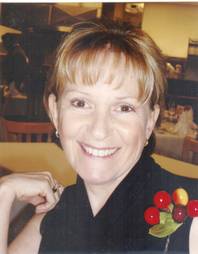Wednesday, Feb. 25, 2009 | 2:46 p.m.

Stefani Evans
Online study groups enable geographically scattered genealogists to learn from each other.
I alluded to such groups in my column, "Classes in genealogy abound across the nation." This column discusses three study groups based on "Professional Genealogy: A Manual for Researchers, Writers, Editors, Lecturers and Librarians" (2001), edited by Elizabeth Shown Mills. Genealogists know the "must-have" book as ProGen; members call the namesake study groups ProGen1 (formed February 2008), ProGen2 (formed September 2008), and ProGen3 (forming, but full).
Genealogist Angela McGhie oversees the ProGen study groups; genealogist Debbie Wayne administers ProGen2. What follows, with their permission, is a synthesis of information they provided me. I also refer readers to ProGen1 mentor Elissa Scalise Powell's posting on the Transitional Genealogists Forum (TGF) listserv and to ProGen1 member Mark Tucker's blog.
According to McGhie, founder Lee Anders, with assistance from genealogist Christy Fillerup, began the first ProGen study group "to encourage professional genealogists and aspiring genealogists to put into practice the principles found in [ProGen]." McGhie is now sole administrator. Anders organized the group through the TGF listserv, and she and McGhie formulated lessons to incorporate ProGen's information into members' personal and professional work. For example, members transcribe and abstract documents from their own research when they study "Transcripts and Abstracts" by Mary McCampbell Bell. Because members live in several states and countries and are unable to meet in person, the individual study and online group discussions accommodate members' diverse needs. Genealogists certified by the Board for Certification of Genealogists (BCG) mentor online discussions and, if needed, offer guidance or answer questions about the BCG (disclosure: I mentor ProGen2).
Each of the three ProGen study groups is composed of about 35 genealogists, divided into up to 6 peer groups, who contribute different skills and areas of expertise. Administrators seek balance of experiences in each peer group and consider worldwide time zones and members' availability when they assign peer group discussion days and times. McGhie and other leaders formulate discussion questions used in the monthly online discussions that are the same for each peer and study group. Administrators post standardized assignments and discussion questions to their Web groups at the beginning of every month.
Peer group members e-mail monthly assignments to each other for review before they meet online for their one-hour discussion; moderators encourage members to participate, ask questions, offer conflicting views, or express different approaches to a problem. Confidentiality within the groups enhances confidence and participation; members of each study group bond through the discussions and communicate between chats through a closed on-line Web group. Wayne notes that that group format may evolve as new groups form. For example, moderators of each monthly chat in ProGen2 began posting depersonalized chat summaries on the closed ProGen2 Web site to enable each member to benefit from the other three monthly peer group discussions. Each online chat develops a discussion differently, but ProGen2 members benefit from the combined wisdom of all four discussions.
McGhie maintains a list of interested persons for future ProGen groups. If you are a serious genealogist who would like to commit to the 18-month schedule of mandatory assignments, reviews, and monthly discussions, I will forward McGhie your contact information. Participation costs nothing, widens genealogical perspectives, and fosters new friendships.
Thank you, Angela McGhie and Debbie Wayne, for providing information, granting permission, and editing. Thank you, Elissa Scalise Powell, for editing and fact-checking. I look forward to reading McGhie's forthcoming article in which she discusses the groups in further detail to encourage other genealogists to form their own study groups.
Stefani Evans is a board-certified genealogist and a volunteer at the Regional Family History Center. She can be reached c/o the Home News, 2360 Corporate Circle, Third Floor, Henderson, NV 89074, or [email protected].

Join the Discussion:
Check this out for a full explanation of our conversion to the LiveFyre commenting system and instructions on how to sign up for an account.
Full comments policy